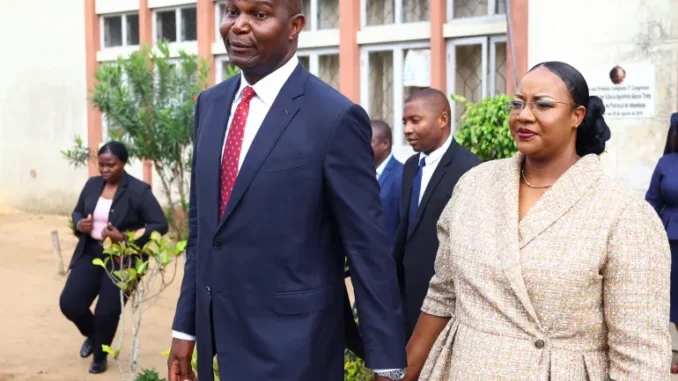
On Monday, December 23, Mozambique’s Constitutional Council officially confirmed the electoral victory of the ruling Frelimo party, securing 65.17% of the vote. The announcement comes after two months of protests that have plunged the nation into an unprecedented political crisis, leaving at least over 100 people dead.
Judge Lucia da Luz Ribeiro, President of the Constitutional Council, proclaimed Frelimo candidate Daniel Francisco Chapo as the elected President of the Republic of Mozambique. Speaking during a live televised address, she declared Chapo the winner with 65.17% of the vote—five percentage points lower than the initial results announced by the Electoral commission two months ago.
Venancio Mondlane, the main opposition leader and Frelimo’s challenger, received 24.19% of the official vote, four points higher than the original tally. Mondlane, who has been in hiding abroad, continues to dispute the results, claiming he won 53% of the vote based on a parallel count. He asserts the election, held on October 9, was marred by widespread irregularities, as noted by several international observer missions.
Despite Frelimo’s confirmed majority in the Assembly with 171 out of 250 seats, the party lost 24 seats compared to the preliminary results. Mondlane, popularly known as “Venancio,” has rejected any reconciliation with Frelimo and issued a stark ultimatum: “The decision of the Constitutional Council will lead Mozambique either to peace or to chaos.”
The ongoing protests, fueled by Venancio’s calls for a “new popular uprising,” have resulted in violent clashes. According to the local NGO Plataforma Decide, at least 130 protesters have been killed, many by live ammunition fired by security forces.
As tensions escalate, the capital city of Maputo resembled a ghost town on Monday. Opposition supporters blocked major roads leading into the city with barricades, while Police set up roadblocks around key Government sites, including the Presidential palace and the Constitutional Council headquarters.
Mozambique, one of the world’s poorest and most unequal countries, now faces a pivotal moment as it grapples with a deepening crisis that threatens both its political stability and social cohesion.
